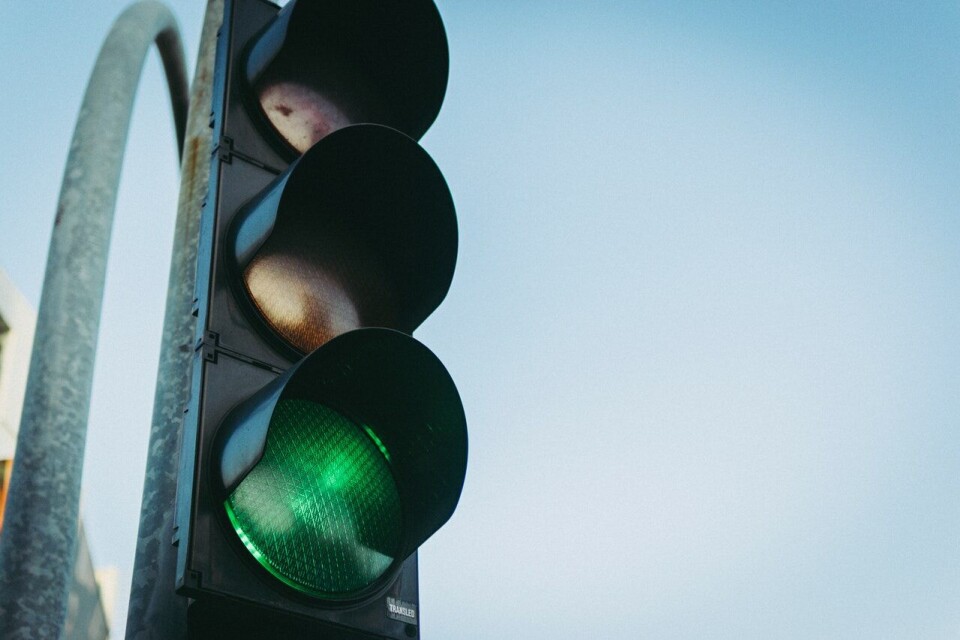-
Anti-mosquito activity already in France amid ‘exceptional’ weather
Wet and warm conditions are encouraging some species to emerge early
-
Warning sign over ‘roaming animal’ near Toulouse ring road amuses drivers
‘Faster than the traffic’ or ‘competing in the Olympic biathlon’ among humorous online comments
-
Two further skier deaths confirmed after weekend avalanches in French Alps
Experienced ski tourers were found when avalanche transceivers emitted warning
What could France’s traffic light plan mean for summer travel abroad?
The country is to join the UK in using a colour-code and the indications are already good for travel to the UK and several other non-EU countries

Since France lifted its restrictions on long-distance travel on May 3 it is possible for residents to travel freely within France and to other EU countries.
However the rules for travel to non-EU countries vary.
The announcement of a ‘green, orange, red’ colour code by France for non-EU countries – similar to the UK’s ‘traffic light’ scheme - is expected to simplify and standardise the rules depending on the colour assigned.
Tourism minister Jean-Baptiste Lemoyne has said further details will be provided in the next few weeks.
Travel agency boss Laurent Abitbol of Marietton and Selectour, interviewed by tourism industry media l’Echo Touristique, claims he discussed the scheme further with Mr Lemoyne, and that, in summary:
- Red will mean people should not go on holiday to these countries, which will include Brazil and India
- Orange will mean you can go but on certain conditions (to be defined)
- Green will mean you simply need to show a recent negative Covid test result when you return to France.
It is hoped also that from mid-June a European ‘digital green certificate’ scheme, linked in with a planned French pass sanitaire, will allow people easily to show their health status so as to ease travel around the EU. The certificate would show information such as having a recent negative Covid test, having had Covid and recovered from it, or being fully vaccinated.
This should mean that those returning who can show that they are vaccinated would not also have to show a negative test.
The EU is known to be in talks with several non-EU countries including the US over compatibility with their own similar schemes and/or what documents would be acceptable from their visitors.
What factors will be used to set the colour of countries?
The French traffic light system will colour-code countries depending on its perceived level of health risk, taking into account data such as case numbers and the spread of variants.
France already has different travel rules in place for travel to countries depending on such factors, which are seen as an indication of what will be required under the new colour-code scheme, though the details are likely to change and countries’ categories may be reassessed.
For those looking to travel to the UK this summer, the good news is that France has already placed the UK on a relatively ‘light’ restrictions regime, bearing in mind its recent good results in getting the virus under control.
What are the current rules for travel within the EU and out of the EU?
The rules below relate to French requirements; further requirements may be in place in the destination country, though it is hoped that there will be minimal complications within the EU, particularly once the ‘digital green certificate’ is in place.
At present, for example, French arrivals in Italy are required to quarantine for five days – this is expected to end on May 15. More country by country information is provided by the Foreign Affairs Ministry.
Testing requirements relate to travellers aged 11 or more.
Travel to other EU countries: Nothing required for outbound travel; negative PCR test taken in previous 72 hours before departure should be shown on return as well as an attestation on your honour that you do not have Covid symptoms, have not to your knowledge been in contact with an infected person in the previous 14 days, and are willing to take another Covid test on arrival if asked
Going to the Australia, South Korea, Israel, Japan, New-Zealand, the UK and Singapore: As above, but those returning are asked to undertake a ‘voluntary’ seven-day quarantine and to take another Covid test before it ends
Going to most of the rest of the world, with exception of list below: You must fill out an attestation giving an urgent reason for the trip, which will be checked before departure; conditions on return are the same as above
Going to Brazil, Argentina, Chile, South Africa, India, UAE, Bangladesh, Nepal, Pakistan, Qatar, Sri Lanka, Turkey, Bahrein, Columbia, Costa Rica and Uruguay: As above but there are additional testing and quarantine requirements.
- Negative PCR test taken in 36 hours before departure, or negative PCR test taken in 72 hours before departure plus antigen test taken less than 24 hours before departure.
- Arrivals should provide documents showing the address of the home or other location (hotel etc) where they will undertake an obligatory 10-day quarantine, including access arrangements if useful (in case of officials visiting to carry out checks). This is not needed if the person will be isolating in an officially-designated location.
Read more
France to use traffic light system for foreign travel ‘by month end’
France is on England’s amber list: 10-day quarantine required
























